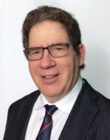
It is a great privilege to have been invited to serve as the editor responsible for geriatric dentistry for the Oral Health Journal. The demographic landscape of Canada has undergone a notable shift in recent decades concurrent with the aging of the “Baby Boomers.” In the 1960’s, Canada’s population structure resembled a pyramid with youth aged 15 and under constituting the base and the elderly population at the apex of the pyramid. However, at present, with declining birth rates and the aging of the “Baby Boomers,” it is the seniors aged 65+ who comprise the fastest growing segment of the Canadian population. In view of the greying of Canadian society, it is essential that all health care professionals, including dentists, be knowledgeable and aware of the special needs of our seniors.
Furthermore, in view of these changing demographics, Canadian dental schools must create and/or expand their geriatric programs to graduate dentists capable of fully addressing the needs of this population. Gone are the days when senior patients all had dentures; today seniors are keeping their own dentition longer and longer, and many are even going for implants. As well, ageing does not necessarily entail the forfeiture of dental esthetics, such as teeth whitening and veneers. For the medically impaired seniors, students must be made aware of the implications of poor oral health on their medical state, as well as vice versa. Physical limitations and mobility issues of this population must also be examined. It is also essential that students graduate with greater knowledge of the most common diseases affecting seniors, as well as of the plethora of medications taken by this population.
The dental industry must also acknowledge this demographic shift as care of the senior patient has not been promoted to date by the industry. A survey of dental conventions and trade shows reveals a preponderance of displays featuring bleaching, veneers and implants, with the depicted patient typically being a young 25-year-old. It is time for a new marketing focus – one which shows the bright shining faces of elderly patients showing off their pearly white smiles! This realignment is crucial to ensure that new dental graduates recognize the inherent value and appeal of geriatric dentistry, perceiving it as a field with the potential to be as dynamic and engaging as the treatment of a 25-year-old patient.
In light of our ageing demographics, it is imperative for the overall health, well-being, and quality of life of our seniors that the Canadian government prioritize the maintenance of the Canadian Dental Care Plan (CDCP). The introduction of the CDCP has been instrumental in increasing the number of seniors seeking dental care. Previously, dental care was neglected by many seniors who, due to the loss of insurance coverage and/or a decline in income following retirement, have foregone regular dental appointments. The correlation between poor health, systemic illness, and quality of life has been well-established. It is to be hoped that in the future, the coverage of the CDCP will be expanded to allow for the placement of implants, for example to stabilize a denture in an atrophic mandible, thus permitting a patient to chew and enjoy their food. This would not only improve the patient’s dental health but also their quality of life.
In conclusion, it is now time for organized dentistry, dental faculties, and the dental industry to address the dental needs of our senior citizens who comprise the fastest growing segment of Canada’s population. It is essential to ensure that their needs are met in a comprehensive and effective manner by knowledgeable younger dentists whose treatments and interventions can greatly improve the quality of life of our seniors well into their golden years.
About the author

Dr. Michael Wiseman completed his dental degree in 1985 at McGill University. He presently is a part-time Clinical Associate Professor at McGill University Faculty of Dental Medicine and Oral Sciences. He has a full-time practice, and additionally provides care at a variety of long-term hospital centres in Montreal. He is the Founder of the McGill Outreach Program which provides free care to the needy of Montreal. Dr. Wiseman has lectured nationally and internationally and has published many peer reviewed papers and book chapters.











